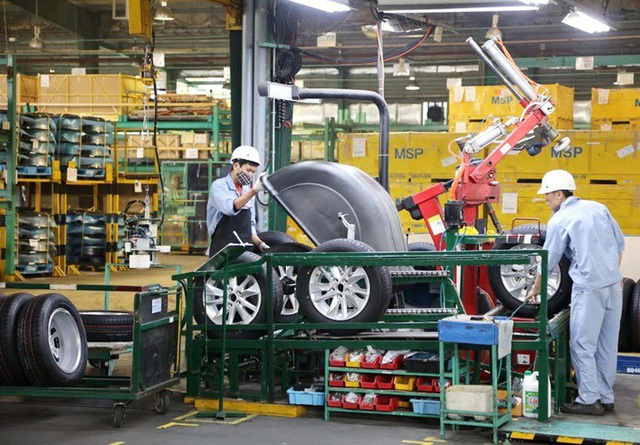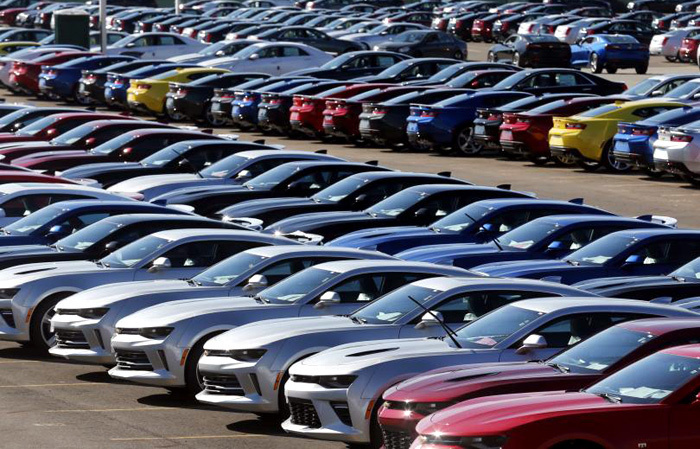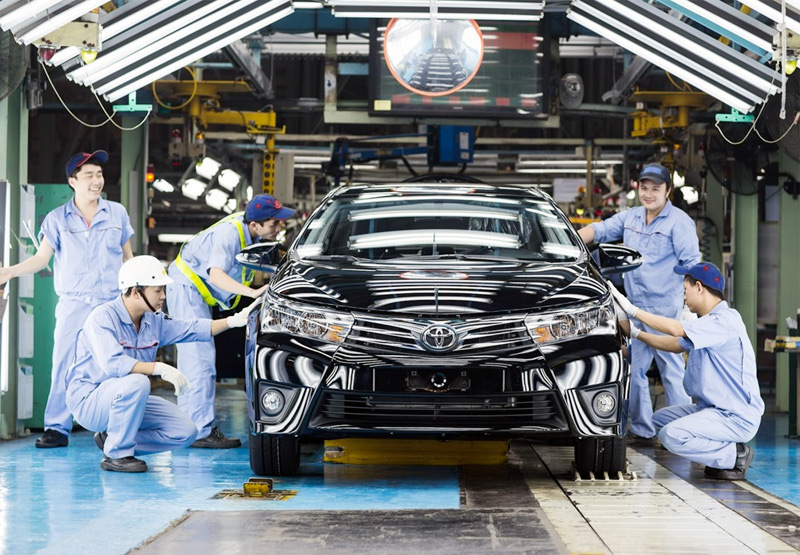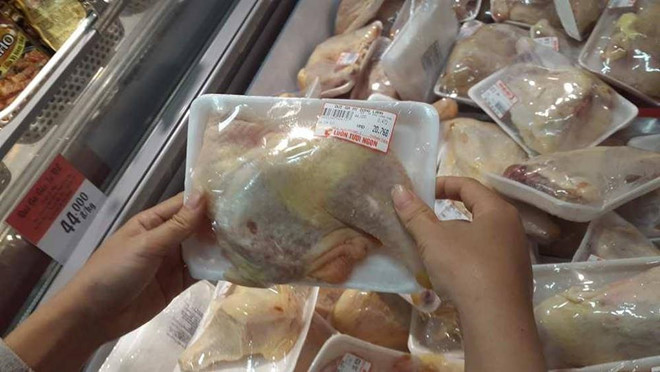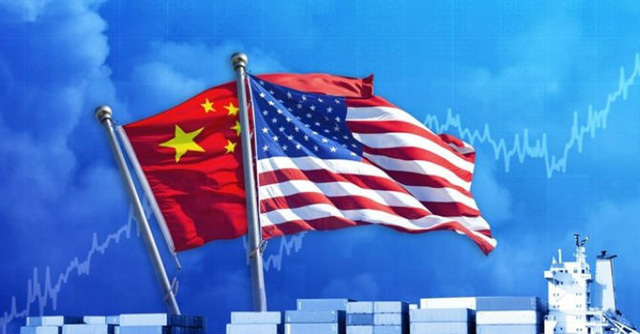- © Copyright of Vietnamnet Global.
- Tel: 024 3772 7988 Fax: (024) 37722734
- Email: evnn@vietnamnet.vn
tariff cut
Update news tariff cut
Limited car output hinders development of Vietnam's support industries
 CBU (complete built unit) imports have been flooding the Vietnamese market while domestic factories have cut output, raising concerns among car part manufacturers that they may lose jobs.
CBU (complete built unit) imports have been flooding the Vietnamese market while domestic factories have cut output, raising concerns among car part manufacturers that they may lose jobs.
Thai autos flooding Vietnamese market
 CBU (complete built unit) imports from Thailand account for more than 50 percent of total car imports and turnover in the first eight months of the year, according to the General Department of Customs (GDC).
CBU (complete built unit) imports from Thailand account for more than 50 percent of total car imports and turnover in the first eight months of the year, according to the General Department of Customs (GDC).
Vietnamese remain hesitant about Chinese cars
 Chinese automobile brands have quietly returned to the Vietnamese market after many years of absence.
Chinese automobile brands have quietly returned to the Vietnamese market after many years of absence.
Imported cars to be more expensive as VN raises luxury tax
 The Ministry of Industry and Trade (MOIT) has proposed raising luxury tax on some car models with fewer than nine seats.
The Ministry of Industry and Trade (MOIT) has proposed raising luxury tax on some car models with fewer than nine seats.
Vietnam to spend $4.3 billion to develop automobile industry
 Experts think the plan to spend $4.3 billion to develop the automobile industry will be in vain.
Experts think the plan to spend $4.3 billion to develop the automobile industry will be in vain.
US chicken dirt-cheap in Vietnam
 Vietnam has increased imports of chicken from the US which have the surprisingly low price of VND18,000 per kilogram.
Vietnam has increased imports of chicken from the US which have the surprisingly low price of VND18,000 per kilogram.
Vietnam is only one option in relocation wave from China, says economist
 The countries with developed technologies such as Japan and the US, when seeking places for their long-term investments, consider possible destinations such as Vietnam, Indonesia and India very carefully.
The countries with developed technologies such as Japan and the US, when seeking places for their long-term investments, consider possible destinations such as Vietnam, Indonesia and India very carefully.
New tax policy restricts import of Chinese vehicles
 Higher import tariffs proposed by the government are expected to restrict imports of trucks and specialized vehicles from China.
Higher import tariffs proposed by the government are expected to restrict imports of trucks and specialized vehicles from China.
Automobile joint ventures expanding production in Vietnam
VietNamNet Bridge - While some automobile assemblers have stopped domestic production and shifted to importing products, others have poured more money into production lines in Vietnam.
Vietnam-US trade outlook 2018: challenges and opportunities
VietNamNet Bridge - With protectionism pursued by the Trump administration, Vietnam’s exports, especially seafood and steel, to the US will face challenges in the time to come.
Vietnam expects stronger foreign investment flow in CPTPP period
Economists are optimistic about foreign investment in Vietnam, both foreign direct investment (FDI) and foreign portfolio investment (FPI), in 2018 and upcoming years.
Vietnam trusts new CPTPP trade agreement
The newly inked Comprehensive and Progressive Agreement for Trans-Pacific Partnership (CPTPP) is expected to greatly help its member countries, especially in the context of the spread of protectionism.
Foreign-invested auto manufacturers shift to selling imported models
Foreign-invested auto companies in Vietnam are stopping domestic production and shifting to importing cars to sell in the market.
As car imports slow, sales of domestically assembled cars go up
Foreign-invested auto enterprises in Vietnam have canceled orders for imports from Thailand and Indonesia because they still cannot get certificates from agencies of export countries, as required by Decree 116.
Following Toyota and Honda, auto manufacturers halt imports
Car imports to Vietnam have dropped sharply in anticipation of Decree 116 which sets strict regulations for locally assembled automobile businesses as well as importers.
Tariff cut to 0%, car market expects boom in sales
VietNamNet Bridge - On January 1, 2018, the luxury tax on some car models with small cylinder capacity was reduced and the import tariff on ASEAN sourced cars was cut to zero percent.
Car price war to break out from January 1, 2018
Car dealers and buyers are ‘holding their breath’ before January 1, 2018, when car prices are expected to see big fluctuations.
Policymakers, auto manufacturers still arguing about car-parts import tariff
Vietnam will have to cut the tariff on CBU imports from ASEAN from 30 percent to zero percent in 1.5 months, but state management agencies and manufacturers are still arguing about the import tariff on car parts.
Domestically made cars to be cheaper thanks to tax incentive
VietNamNet Bridge - While car imports are likely to be barred from Vietnam by technical barriers, domestic automobile manufacturers have been given preferential treatment.
Small, affordable cars to be sold in Vietnam after 2018
Analysts believe that new car brands will enter the Vietnamese market after 2018 when import tariffs fall, providing products at low prices and targeting middle-income earners.
